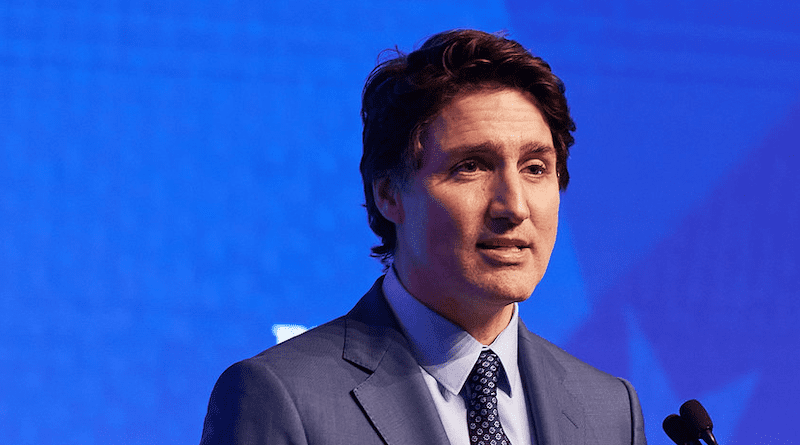Justin Trudeau’s Rebuke From Court Over Abuse Of Emergency Powers Shows Why Checks And Balances Are Essential To Freedom – OpEd
By FEE
By Jon Miltimore
In February 2022, Canadian Prime Minister Justin Trudeau announced he was invoking the 1988 Emergencies Act, a new Rubicon in Canadian history.
The action marked the first time federal emergency powers had been activated in Canada since the “October Crisis of 1970,” when Trudeau’s father, Pierre Elliott Trudeau, invoked the War Measures Act of 1914, a move he initiated after a high-ranking Canadian official was kidnapped (and later killed) by political terrorists.
The target of the younger Trudeau’s wrath was not political terrorists, however, but truck drivers protesting the government’s vaccine mandates and broader COVID-19 restrictions.
“We cannot and will not allow illegal and dangerous activities to continue,” Trudeau said of the group of truckers, who became known as “the Freedom Convoy.”
It turns out, however, that it was not truckers who were behaving illegally. It was Trudeau.
On Tuesday, a Canadian court rebuked the prime minister for invoking emergency powers in response to the protests, ruling that the action “was not justified in relation to the relevant factual and legal constraints that were required to be taken into consideration.”
The Canadian Civil Liberties Association, which, in 2022, filed suit against the federal government, applauded the court’s decision, saying emergency powers are “dangerous to democracy” and “should be used sparingly and carefully.”
The CCLA is right about the dangers emergency powers pose. And because Canadian officials say they will appeal the court’s ruling, it’s well worth examining just how egregious and reckless Trudeau’s use of emergency powers was.
Traditionally, in Canada, emergency powers were reserved for things such as war, insurrection, or invasion. And though the Emergencies Act broadened the language of Canada’s emergency powers statute to include things such as “public welfare emergencies,” those powers had never been activated until 2022.
Trudeau’s actions were a radical departure from the norms and philosophy of classical liberalism.
The constitutions of the United States and Canada, the United Nations, and thinkers as diverse as Thomas Jefferson, Martin Luther King Jr., and Nelson Mandela all recognize the fundamental right of peaceful protest.
By invoking these sweeping emergency powers to crack down on a civil protest, Trudeau was behaving more like the head of a state such as Iran, North Korea, or China than a liberal, constitutional democracy. (Perhaps this shouldn’t surprise us, considering that Trudeau has in the past expressed envy over the unfettered power of dictators.)
Hundreds of charges were issued, and many were arrested after exercising their right to protest.
Yet it’s important to understand that Trudeau’s persecution did not end with the truckers. His crackdown extended to those supporting them financially.
To cite one high-profile example, the Christian fundraising site GiveSendGo, which was collecting donations for protesters, was ordered to stop receiving donations.
It refused.
The following day, Deputy Prime Minister Chrystia Freeland announced the government would now have the power to freeze bank accounts without a court order. The action, which caused momentary chaos in Canada’s banking system, was a form of economic warfare and a gross violation of free speech.
“There is no principled basis for cutting off the ability of citizens to support other citizens in a campaign of civil disobedience,” George Washington University Law School professor Jonathan Turley wrote.
Despite his authoritarian attempts to steamroll political opponents, Trudeau, in what might have been the best gaslight of 2023, later argued he actually never made anyone get vaccinated. He was merely giving people the proper “incentives.”
It’s hard to imagine a more shameless claim. And Trudeau’s effort to “incentivize” behavior, and crush dissenters in his path, is a reminder of just how important the separation of powers is to freedom.
The idea stretches back to the Enlightenment-era French philosopher Montesquieu, who wrote in The Spirit of Laws that “power should be a check to power.” This simple idea of separating power and using separate branches of government to keep one another in check underpins both the American and Canadian constitutions, as well as many others.
The Canadian court has, thankfully, finally put Trudeau in check.
But his tyrannical actions show that checks and balances are designed not only to protect the people from the Caligulas, Lenins, and Pol Pots of the world but also from what C.S. Lewis called the worst of all tyrants, the busybody who would exercise power over his subjects “for the good of its victims.”
- About the author: Jonathan Miltimore is the Editor at Large of FEE.org at FEE
- Source: This article was published by FEE and originally appeared in The Washington Examiner.

